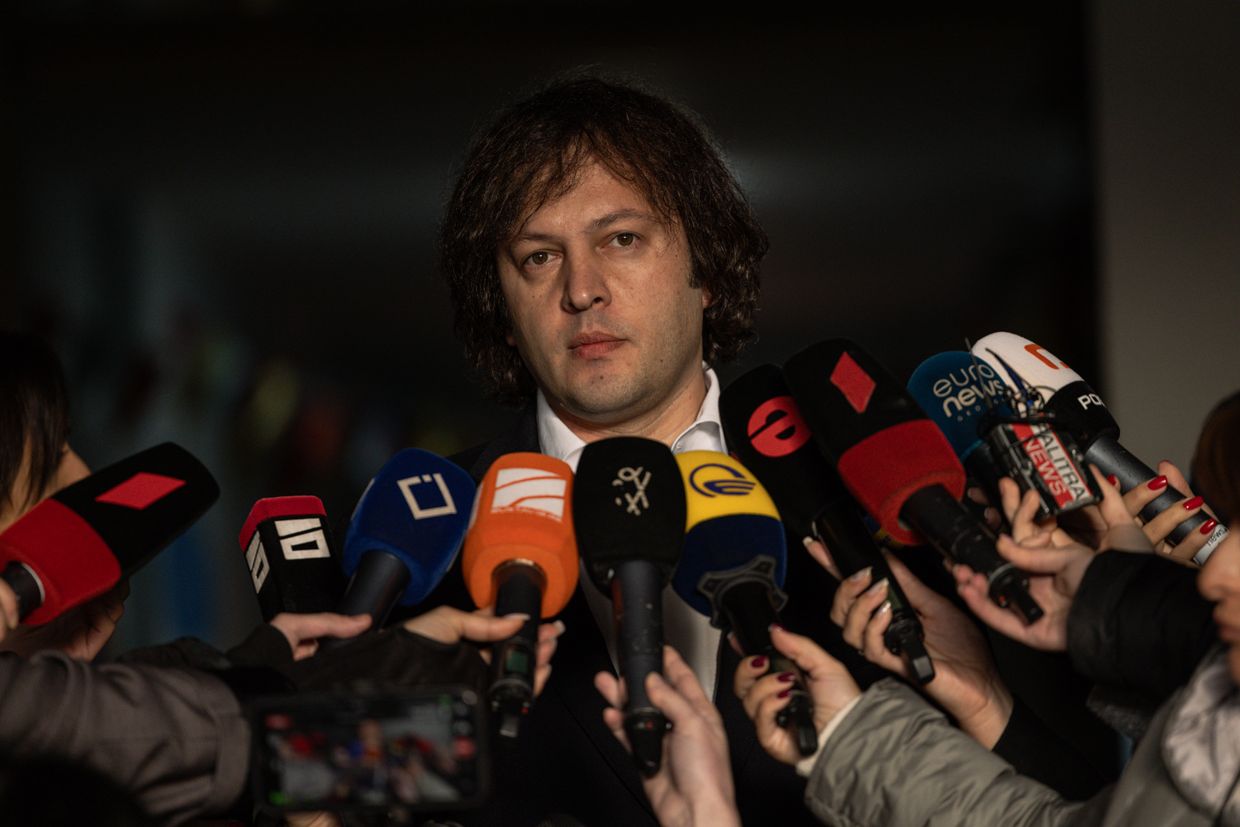Georgian elections accompanied by vote buying, intimidation, European monitors say

The Georgian parliamentary elections were marred by intimidation and irregularities before and during the vote, European monitors said on Oct. 27 after the ruling party claimed victory.
The country's electoral commission said the ruling Moscow-friendly Georgian Dream party won 53.9% in the Oct. 26 vote that was described as pivotal for Georgia's EU aspirations.
Some pro-EU opposition parties refused to recognize the result and said the election was stolen, pointing to election monitors reporting various violations, including ballot stuffing and voter intimidation.
"During our observation, we noted the cases of vote buying and double voting before and during elections, especially in rural areas," said Ioan Bulai, the head of the delegation of the Parliamentary Assembly of the Council of Europe (PACE).
"The presence of cameras of the ruling party in the polling stations, and people in front of polling stations tracking and possibly controlling voters, led to the atmosphere of pressure and party-organized intimidation."
Pascal Allizard, who led the mission of the Organization for Security and Co-operation in Europe (OSCE), undesrcored "imbalances in financial resources, a divisive campaign atmosphere, and recent legislative amendments were of significant concern throughout this election process."
Allizard said the legal framework for the elections was "adequate" and the vote was "largely peaceful," though recent amendments reversed some previous positive changes.
Antonio Lopez-Isturiz White, the head of the European Parliament delegation, said that the "ruling party used anti-Western and hostile rhetoric, targeting Georgia’s democratic partners, in particular the European Union, its politicians and diplomats, promoted Russian disinformation, manipulation, and conspiracy theories."

"Reports of irregularities in Georgian elections give rise to grave concern," Estonian Foreign Minister Margus Tsahkna said on X.
The German Foreign Ministry declared that it "fully supports preliminary findings & conclusions" of the OSCE mission and is "concerned about the reported tense environment and irregularities."
"The handling of the election outcome & government formation will also affect the future progress of Georgia on its European path," the ministry said on social media.
In turn, Georgian Dream has received congratulations from several world leaders, including neighboring Azerbaijan and Armenia, while Russian and Hungarian officials have praised the results.
The Coalition for Change, one of the opposition groups that won 10.9% of the vote, said it would not "legitimize votes stolen from Georgian citizens" by taking up their parliamentary mandates.
Georgian Prime Minister Irakli Kobakhidze dismissed the opposition's protests and said the parliament would approve the government nonetheless.
The ruling party, founded by oligarch Bidzina Ivanishvili, has seen the South Caucasus country drift ever closer to Moscow, hampering its EU aspirations. Tbilisi's adoption of the controversial foreign agents law earlier this year led to the EU effectively freezing Georgia's accession process, even though it was awarded candidate status last December.
The ruling party said it would also seek a constitutional ban on UNM, one of the country's leading opposition parties founded by former President Mikheil Saakashvili, and other opposition groups.
The introduction and passing of the foreign agents bill has sparked widespread protests across the country, both in March 2023 and in May this year. A large rally in support of Georgia's accession to the European Union was also held in Tbilisi's Freedom Square on Oct. 20, one week before the elections.











